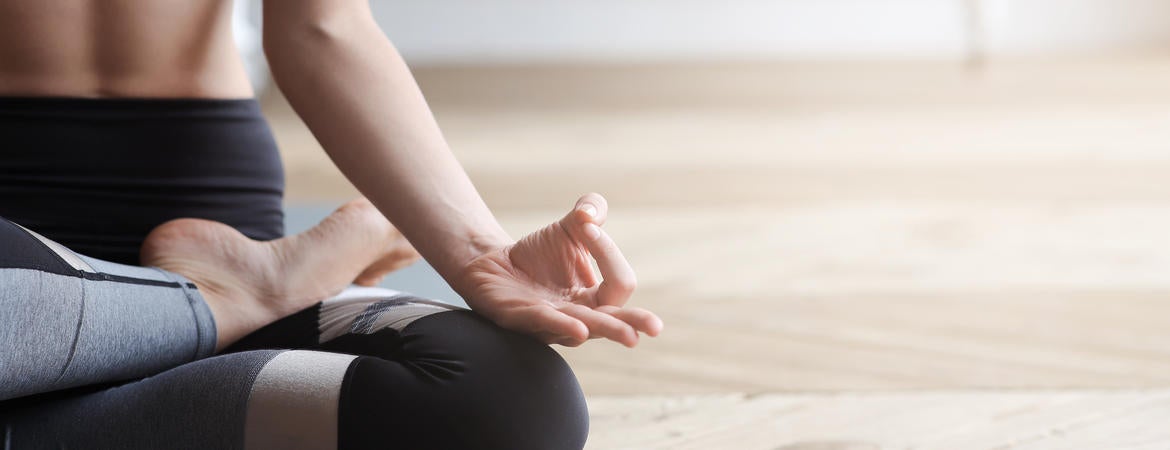As the UC Riverside community adjusts to self-quarantining to prevent the spread of COVID-19, it’s also important to keep physically and mentally healthy, experts say.
“Adjusting to a new schedule routine, along with the uncertainties in the world, can be extremely challenging,” said Julie Chobdee, co-chair of UCR Healthy Campus and Wellness Program coordinator. “However, there are things you can control. Choose wholesome, nutritious foods, find ways to be active every day, take steps to manage your stress and anxiety, and if you use tobacco products or vape, consider quitting.”
UCR Healthy Campus and the Faculty and Staff Wellness Program will be sharing tips and resources in the coming weeks about how to stay safe and healthy during this period of social distancing where people are spending most of their day at home.
Here are some of their tips:
Stay Up to Date. Visit the UCR COVID-19 website and the CDC website for up-to-date information and resources.
Stay informed about the stressful feelings you may experience. This tip sheet describes feelings and thoughts you may have during and after social distancing, quarantine, and isolation. It also suggests ways to care for your behavioral health and provides resources for more help.
Get dressed for the day. You don’t have to wear your normal work clothes but get out of your pajamas and into “work” clothes.
Keep the same schedule as you would at the office. Start by establishing one to two steps that signal you’re about to start your workday — such as brewing coffee or turning on the morning TV news. A schedule should include work breaks and an end time. Shut down your computer, start on dinner, or go for a short walk.
Map out a home office. Pick a spot in your home where you’ll work. Make it somewhere free of distractions. You will need more space than the kitchen counter. You should consider whether your space is ergonomically friendly. For virtual ergonomic consultations, please contact Clyde Blackwelder at clyde.blackwelder@ucr.edu.
Set boundaries. This is a time where many Americans are working from home. If other people are at home during the day, discuss with them the times you’ll be working and ways to minimize distractions by alternating work schedules and organize home responsibilities.
Move More. Try to move more while working remotely or at work. In addition to your daily exercise (e.g., walking, doing an online exercise video), take short stretch breaks. If you have a virtual meeting, try a standing or walking meeting. The UCR SRC has created a website with free online fitness workouts, tips, and classes.
Meditation. Use the time you would normally be commuting to start a mindfulness practice.
Social connection. Take time to connect with your coworkers through email, instant messaging, or phone. All the brief conversations that normally happen in the break room or after meetings stop. Some departments have started Zoom lunches to connect back with coworkers during this time.
Enjoy healthy snacks. Now is the time to start creating healthy habits. Food is more easily accessible, and it is a great time to put your metabolism on schedule as well. Snack healthy and eat all three meals. By keeping your metabolism on a schedule, your body will remember to burn off calories when it receives them. Need ideas? Visit our Healthy Campus Healthy Snack List.
Seek help from mental health providers. Students may contact Counseling & Psychological Services at (951) 826-5531 to speak with a counselor. Staff and faculty members can contact the Faculty and Staff Assistance Program at (951) 781-0510 or (800) 266-0510 for confidential counseling, referral, or other resources.
Unplug from time to time. Take a break from social media and the news. It’s easy to get caught up in all the unpleasant aspects of the modern world. If too much negativity is pulsing through your news feed, shut it off. Scrolling through social media is not a mental break; rather, it acts as a stimulant and can cause additional stress.
Reach out to people you trust to reduce anxiety, loneliness or boredom. Use the telephone, email, text messaging, social media, Skype, or FaceTime to connect with friends, family, and others.
Practice gratitude. Start or end your day by journaling three things for which you are grateful. By looking at the positive aspects of life, it’s possible to change your pattern of thinking, leading to a happier outlook on life in general.
Find ways to unwind. When stress is high and you feel overwhelmed, find an activity that you enjoy, can look forward to, and helps clear your mind.




